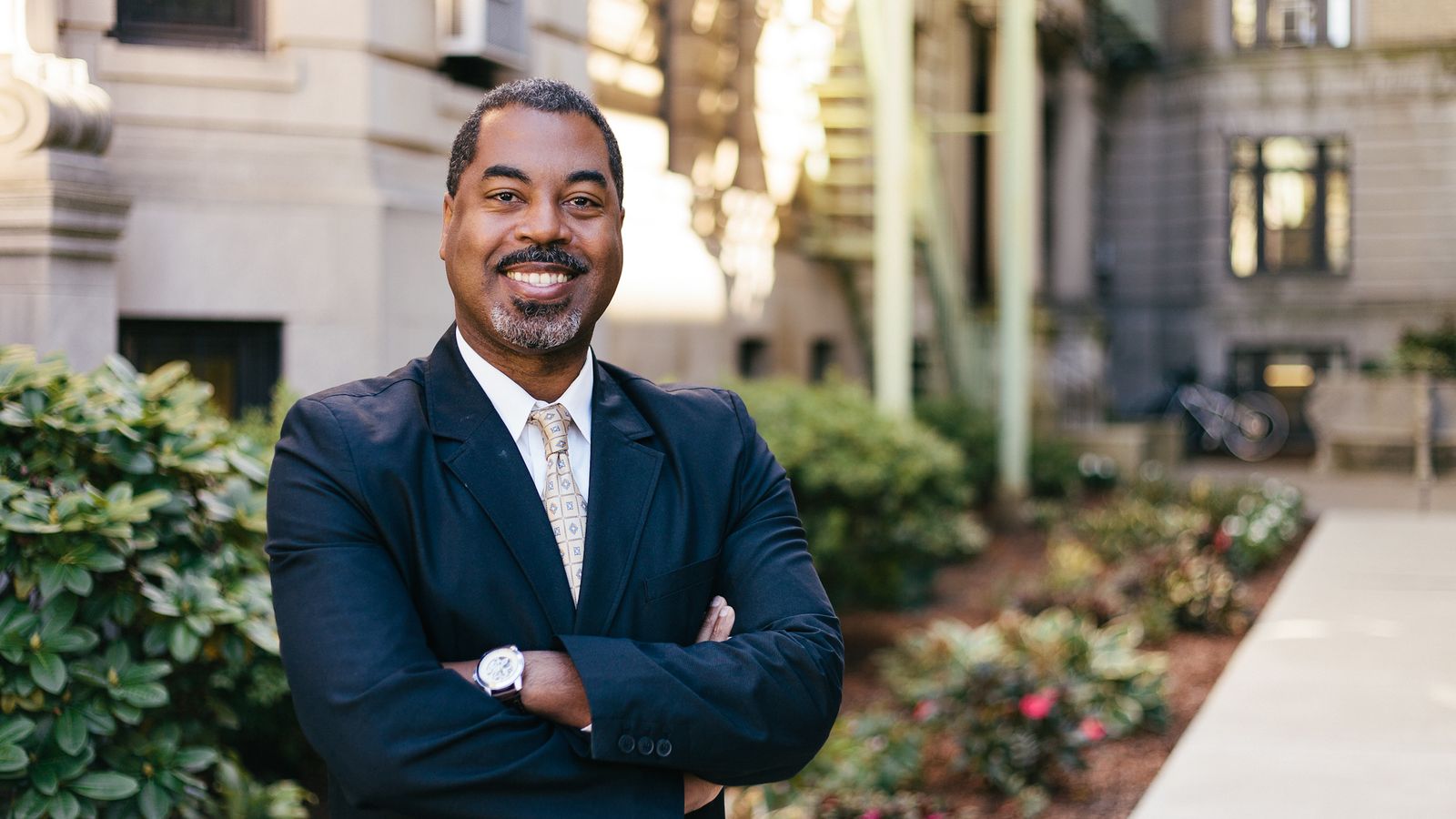The Boston Globe: Prof. Copeland Explains Why ‘Tough on Crime’ Is a Tool of Racial Oligarchy

In an op-ed published by The Boston Globe in The Emancipator, Prof. Phillipe Copeland of Boston University School of Social Work (BUSSW) explains how racial oligarchy – rule based on wealth and racism – has reasserted itself in the years since the George Floyd protests prompted claims of a “racial reckoning.”
Excerpted from “Call ‘tough on crime’ what it is: a tool of racial oligarchy” (The Boston Globe, Nov. 15, 2022) by Phillipe Copeland:
Polling suggests that support for Black Lives Matter and police reform has ebbed, and the conditions that made Floyd’s murder more likely have not changed. Police killings continue while Black Americans struggle with economic inequities centuries in the making and deepened by the COVID-19 pandemic.
Not only have conditions remained unchanged, but demands for change have been met with backlash. This includes the resurgence of “tough on crime” politics, right-wing commentary and news coverage, and other efforts to discredit and roll back criminal legal reforms. Progressive prosecutors trying to curb mass incarceration and police violence have been blamed for a spike in crime during the pandemic. San Francisco District Attorney Chesa Boudin was recalled in June, for example.
Bail reform has also become a convenient scapegoat for concerns about crime. Some places are returning to crackdowns on low-level crimes, targeting the unhoused, and putting more dollars into policing. Unlike backlash efforts primarily driven by conservatives such as political violence, voter suppression, or election interference, the comeback of “tough on crime” includes those who identify as liberal. It is part of the same backlash, advancing a common political project.
Prof. Phillipe Copeland is a clinical associate professor at BUSSW and faculty lead for education and training at the BU Center for Antiracist Research. His work focuses on antiracist education, the abolition of racial oligarchy, and health justice.
Copeland’s article is publicly available through The Emancipator, a reimagining of the United States’ first abolitionist newspaper created in partnership between The Boston Globe and the BU Center for Antiracist Research.